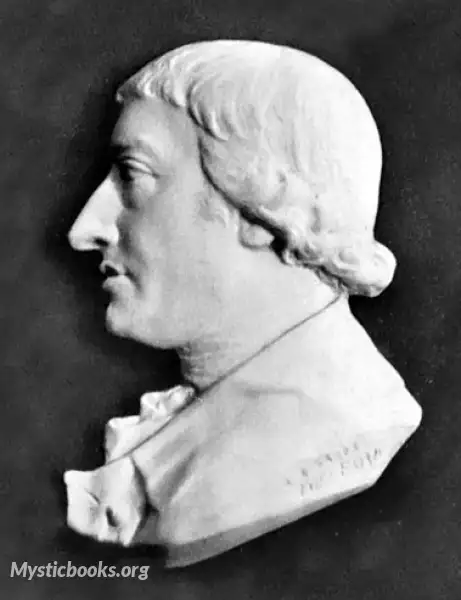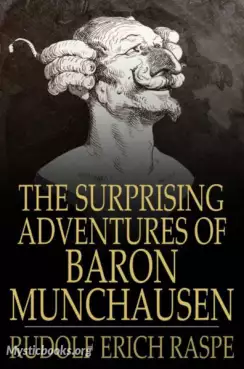
Timeline
Title
Country/Nationality
Rudolf Raspe
Rudolf Erich Raspe was a German librarian, writer, and scientist, called by his biographer John Patrick Carswell a "rogue". He is best known for his collection of tall tales The Surprising Adventures of Baron Munchausen, also known as Baron Munchausen's Narrative of his Marvellous Travels and Campaigns in Russia, originally a satirical work with political aims.
Raspe was born in Hanover, and baptised on 28 March 1736. He studied law and jurisprudence at Göttingen and Leipzig and worked as a librarian for the university of Göttingen. In 1762, he became a clerk in the university library at Hanover, and in 1764 secretary to the university library at Göttingen. He had become known as a versatile scholar and a student of natural history and antiquities, and he published some original poems and also translations of Ossian's poems. In 1765 he published the first collection of Leibniz's philosophical works. He also wrote a treatise on Thomas Percy's Reliques of Ancient English Poetry.
In 1767, he was appointed professor in Cassel, and subsequently librarian. He contributed in 1769 a zoological paper to the 59th volume of the Philosophical Transactions, which led to his being elected a Fellow of the Royal Society of London, and he wrote voluminously on all sorts of subjects. In 1774, he started a periodical called the Cassel Spectator. From 1767, he was responsible for some collections of Frederick II, Landgrave of Hesse-Kassel. He had to flee to England in 1775 after having gone to Italy in 1775 to buy curios for the Landgrave. He was found to have sold the Landgrave's valuables for his own profit. He was ejected from the Royal Society that same year for his "divers frauds and gross breaches of trust".
In London, he employed his knowledge of English and his learning to secure a living by publishing and translating books on various subjects. Besides helping translate Georg Forster's A Voyage Round the World into German, he also translated German works into English, and there are allusions to him as "a Dutch savant" in 1780 in the writings of Horace Walpole, who gave him money and helped him to publish an Essay on the Origin of Oil-painting . But Raspe remained poor, and the Royal Society expunged his name from its list.
From 1782 to 1788, he was employed by Matthew Boulton as assay-master and storekeeper in the Dolcoath mine in Cornwall. At the same time, he also authored books in geology and the history of art.
The Trewhiddle Ingot, found in 2003, is a lump of tungsten found at Trewhiddle Farm and thought to be at least 150 years old. This may predate the earliest known smelting of the metal (which requires extremely high temperatures) and has led to speculation that it may have been produced during a visit by Raspe to Happy-Union mine (at nearby Pentewan) in the late eighteenth century. Raspe was also a chemist with a particular interest in tungsten. Memories of his ingenuity remained to the middle of the 19th century. While in Cornwall, he seems to have written the original version of Munchausen; whether he also wrote the several continuations that appeared until 1792 is still debated.
Books by Rudolf Raspe

The Surprising Adventures of Baron Munchausen
‘The Surprising Adventures of Baron Munchausen’ is an enjoyable & satirical account of the fictitious exploits and travels of the fictionalized ‘Baron Munchausen’. These tall-tales, which are narrated by the Baron to his listeners, are fabulous to re...